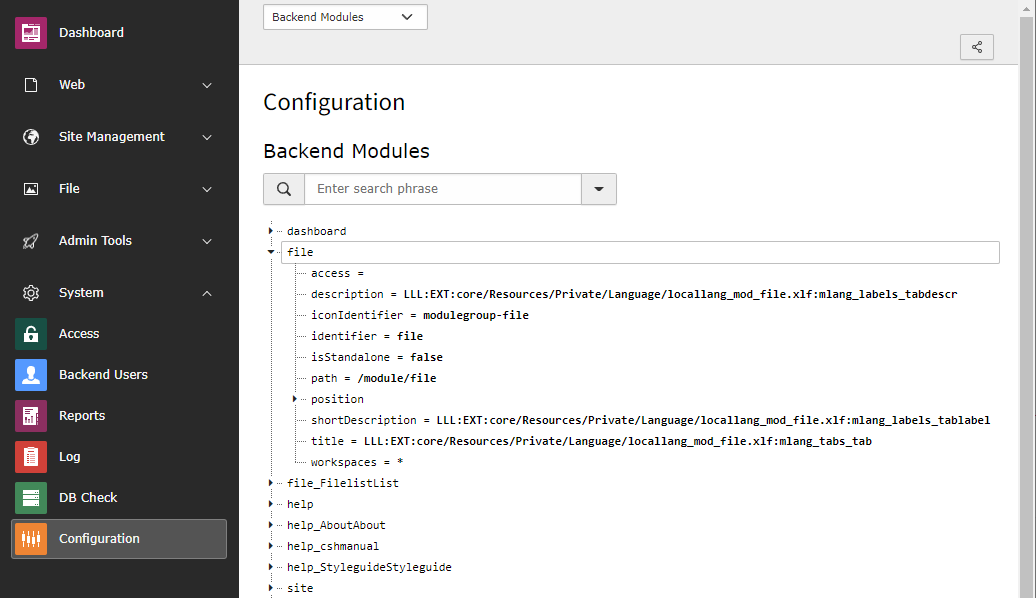Backend module configuration examples
The configuration of backend modules is placed in the
dedicated configuration file: Configuration/Backend/Modules.php.
See also the See also the Backend module configuration API.
Read more about
Example: register two backend modules
You can find the following example in EXT:examples.
Two backend modules are being registered. The first module is based on Extbase while the second uses a plain controller.
EXT:examples/Configuration/Backend/Modules.php
<?php
/*
* This file is part of the TYPO3 CMS project.
*
* It is free software; you can redistribute it and/or modify it under
* the terms of the GNU General Public License, either version 2
* of the License, or any later version.
*
* For the full copyright and license information, please read the
* LICENSE.txt file that was distributed with this source code.
*
* The TYPO3 project - inspiring people to share!
*/
use T3docs\Examples\Controller\AdminModuleController;
use T3docs\Examples\Controller\ModuleController;
/**
* Definitions for modules provided by EXT:examples
*/
return [
'web_examples' => [
'parent' => 'web',
'position' => ['after' => 'web_info'],
'access' => 'user',
'workspaces' => 'live',
'path' => '/module/page/example',
'labels' => 'LLL:EXT:examples/Resources/Private/Language/Module/locallang_mod.xlf',
'extensionName' => 'Examples',
'iconIdentifier' => 'tx_examples-backend-module',
'controllerActions' => [
ModuleController::class => [
'flash', 'tree', 'clipboard', 'links', 'fileReference', 'fileReferenceCreate', 'count',
],
],
],
'admin_examples' => [
'parent' => 'system',
'position' => ['top'],
'access' => 'admin',
'workspaces' => 'live',
'path' => '/module/system/example',
'labels' => 'LLL:EXT:examples/Resources/Private/Language/AdminModule/locallang_mod.xlf',
'iconIdentifier' => 'tx_examples-backend-module',
'routes' => [
'_default' => [
'target' => AdminModuleController::class . '::handleRequest',
],
],
],
];
Copied!
Check if the modules have been properly registered
All registered modules are stored as objects in a registry. They can be viewed in the backend in the System > Configuration > Backend Modules module.

Exploring registered Backend Modules in the Configuration module
The ModuleProvider API allows extension authors to work with the registered modules.
